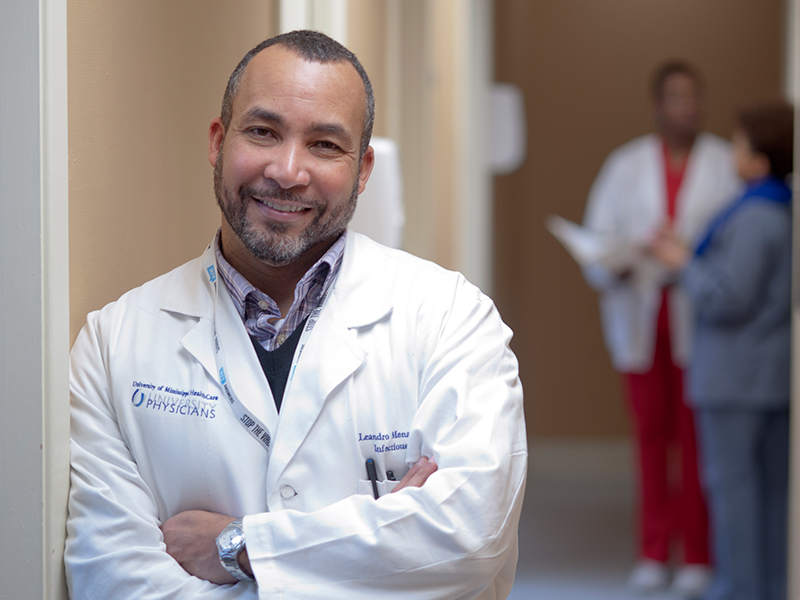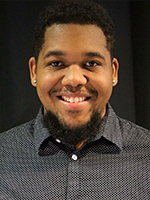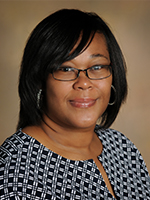Mena, expert panel champion first-ever MSM care standard

When it comes to the health of gay, bisexual and other men who have sex with men, the absence of a national standard of care leaves a critical gap for a population already at risk for sexually transmitted diseases and related health disparities.
A blue-ribbon panel of national public health professionals is changing that scenario. They’ve created a multi-faceted standard of care for men who have sex with men, or MSM, in their quest to advance effective STD prevention programs and services in every community in the country.
The panel’s report released today, “MSM Sexual Health Standards of Care,” addresses the alarming sexual health crisis in that community.
“This is the first effort that outlines what should be included in the care of men who have sex with men as part of a standard of care,” said Dr. Leandro Mena, University of Mississippi Medical Center professor and chair of the Department of Population Health Science at the John D. Bower School of Population Health and an international expert on sexually transmitted diseases.
Mena, an infectious diseases physician who directs UMMC’s Center for HIV/AIDS Research, Education and Policy, served as co-chair of the 24-member panel. The group includes representatives from entities such as the Centers for Disease Control and Prevention, the New York City Department of Health and Mental Hygiene, Johns Hopkins School of Medicine, the California Department of Public Health and the AIDS Research Consortium of Atlanta.
The study was sponsored by the National Coalition of STD Directors, the National Alliance of State and Territorial AIDS Directors and the National Network of STD Clinical Prevention Training Centers.
The panel’s sexual health standard of care for MSM – what they should receive through clinic visits -- includes:
- A comprehensive sexual history; mental health assessments and referrals; counseling about condoms, lubrication, enemas and douches; and discussions about sexual satisfaction and pleasure
- A visual exam to check for signs of HPV, syphilis or other STDs
- Urethral swab or urine-based chlamydia and gonorrhea screening; rectal and pharyngeal chlamydia and gonorrheal screening
- Syphilis, HIV and hepatitis C screening every three to six months for sexually active MSM with multiple partners, and at least annually for other MSM
- Vaccines for human papillomavirus, or HPV, and Hepatitis A and B
- Pre- and post-exposure prophylaxis as indicated; expedited partner therapy for chlamydia or gonorrhea infection
Standards of care exist for other populations, such as a woman’s annual visit to a gynecologist. “The doctor takes a history, does a breast exam and pap smear, gets blood and urine samples,” Mena said. “They’ll talk about what you should do to make sure you’re healthy. It’s a minimum package of services and counseling that people would receive almost anywhere in the country.”
But, not so with the MSM population, he said. “There’s no consistent way by which they receive care. There’s no consideration to the disparities that they may be at risk for, or their sexual orientation or sexual behavior.”
The continuum of care is especially important in Mississippi. Jackson has the fourth-highest rate of HIV diagnosis per 100,000 population among the nation’s metro areas. In 2014, about 40 percent of MSM in the Jackson metro area were infected with HIV, and in 2013, Jackson had the highest HIV incidence among HIV negative MSM in the country.
Overall, an estimated 10,050 Mississippians are living with a diagnosis of HIV. And at the end of 2014, an estimated 1,400 Mississippians were infected with HIV but didn’t know it – underscoring the importance of universal HIV testing.
The panel’s recommendations go beyond federal guidelines and instead incorporate the collective experiences of the panel’s experts in sexual health. Their work took into consideration the social landscape for many MSM that can impact whether or not they walk into a clinic. “There is significant evidence that social factors, such as racism, homophobia, immigration status, unemployment and mass incarceration are associated with poor health outcomes, even when controlling for other factors,” the report says.
Those social determinants collide with gay or bisexual men, “creating barriers to sexual health along the spectrum of health care, including knowledge of the need for access,” the report states.

Although he’s had good access to health care, Ridgeland resident Obie McNair, 27, has come away feeling his sexual health needs haven’t fully been met.
“It was difficult to talk to them about the behavior I was engaging in,” said McNair, who works for a nonprofit and is HIV negative. “Either I wouldn’t talk about it, or my health care provider wouldn’t ask me about it.”
The lack of a standard of care has profound implications, said June Gipson, chief executive officer of the nonprofit My Brother’s Keeper and of Open Arms Healthcare Center, a Jackson community clinic that offers primary and mental health services with an emphasis on the health care needs of the LGBT population.
“They’re dying,” she said of MSM. “They’re becoming infected with HIV. Being gay in Mississippi is not easy. I can’t imagine someone saying that somebody doesn’t deserve to be healthy.”
Open Arms, she said, “has a medical model” for the overall care of MSM. “We created our own standard of care for them, and it’s been amazing. You can see that they’re not afraid of health care anymore. They walk into this clinic, and say, ‘This is for me.’’’
While living in another state, McNair said, he needed to get tested for STDs. “Thankfully, I wasn’t in Mississippi. I called my physician the next day,” he said. “Before Open Arms, I probably wouldn’t have been comfortable calling someone here to get tested.”
When social disparities go unaddressed, the report says, rates of syphilis, gonorrhea and HIV in black and Latino MSM will only continue to climb. In 2015, the most recent year data was compiled, MSM accounted for more of those cases nationally – 82 percent – than heterosexual men and women in all racial and ethnic groups combined. That’s particularly troubling, because nearly 40 percent of MSM don’t reveal their sexual orientation to their health care providers.
It’s hard to focus on a disease or disease prevention when other basic needs aren’t being met – food, housing, homelessness, a job. To expect a patient to attend regular clinic appointments and take his medications is unrealistic unless his major life issues are addressed, the panel says.
A treatment plan should take those factors into account, the panel says, and the provider should ask about and identify potential socioeconomic stressors that compete with the patient’s ability to manage his sexual health. Providers should be aware of support services, including emergency or temporary housing, and have a referral system in place, the panel recommends.
“Providers should build relationships with their patients to put them at ease and to reduce barriers to open lines of communication,” the report says. “ … Even well-intentioned physicians may not be having these conversations with their patients.”

It’s hard enough to get men in general to visit a doctor, Gipson said.
Services offered at Open Arms “are a no-brainer,” she said. “You get this entire package. When you know your HIV and STD status, when you know your blood pressure and body mass index and your glucose levels, you become more interested in your health care. You show up for your appointments.”
The medical community, especially in the South, must embrace the panel’s work, Gipson and Mena said. “The urgency is right here in our faces, and it’s inclusive of both HIV and every health disparity affecting Mississippi,” Gipson said.
Southern states have the most disproportionate and highest rates of new HIV-positive diagnoses, the highest percentage of people living with HIV, and the lowest rate of survival for those who are HIV positive, the CDC says.
“At the end of the day, it’s all about quality care,” Mena said. “Quality in sexual health care should be afforded to all people.”

